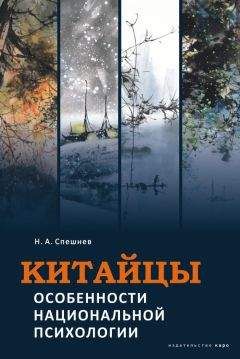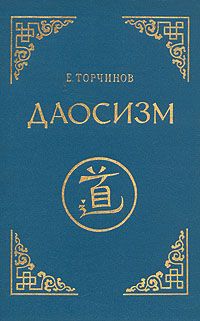Kim ManChoong - The Cloud Dream of the Nine
Cloudlet's good-bye to Master Yang proves that Jewel's belief in her devotion and loyalty was well founded. Yang had tried to persuade Cloudlet that she might remain with him. He said: “Your devotion to your mistress is most commendable. Still your lady's person and yours are different. While she goes north, south, east or west as she chooses, your following her and at the same time attempting to render service to another, would break all the laws that govern a woman's existence.”
Cloudlet replied: “Your words prove that you do not know the mind of my mistress. She has already decided to remain with her aged parents. When they die she will preserve her purity, cut off her hair, enter a monastery and give herself up in prayer to the Buddha, in the hope that in the life to come she may not be born a woman. I, too, will do just the same as she. If your lordship intends to see me again your marriage gifts must go back to the rooms of my lady. If not, then to-day marks our parting for life. Since I have waited on your lordship I have been greatly loved and favoured and I can never repay even in a hundred years a thousandth part of all your kindness. My one wish is that in the life to come I may be your faithful dog or horse. . . .” She then blessed him and turned away weeping bitterly.
VI.—HEAVEN ON EARTH
Confucian, Buddhist and Taoist ideas are mingled throughout the story, but everyone speaks with confidence of Heaven as a place. While the Buddhist conception of Heaven is so pure that no earthly desire can exist there, Yang is carried in dreamland to a very different Heaven. He is being entertained by the Dragon King, who desires to do him all honour and to express gratitude for Yang's deliverance of the Dragon King's daughter from her enemy. After being borne on the wind to a spot “close to the outskirts of Heaven,” they arrive at the palace, where a gorgeous feast is spread for them.
“They” (the Dragon King, Yang and the Dragon King's daughter) “drank till their hearts were merry and then the King called for music. Splendid music it was, arranged in mystic harmony unlike the music of the earth. A thousand giants, each bearing sword and spear, beat monster drums. Six rows of dancing girls dressed in phoenix garb and wearing bright moon ornaments, gracefully shook their long flowing sleeves and danced in pairs, a thrilling and enchanting sight.”
Yang seems to have touched the height of satiety also at a festival in his earthly paradise. We read:
“The Master (Yang) and the Prince were compelled by the falling shadows of the evening to break up the feast and return. They gave each performer rich presents of gold, silver and silk. Grain measures of gems were scattered about, and rolls of costly materials were piled up like hillocks. The Master and the Prince, taking advantage of the moonlight, returned home to the city amid the ringing of bells. All the dancers and musicians jostled each other along the way. The sound of gems and tinkling ornaments was like falling water, and perfume filled the atmosphere. Straying hair-pins and jewelled ornaments were crushed by the horses' hoofs and the passing of countless feet. The crowd in the city, desiring to see, stood like a wall on each side of the way. Old men of ninety and a hundred wept tears of joy, saying: 'In my younger days I saw his Majesty Hyon-jong (A.D. 713-736) out on procession and his splendour alone could be compared with this.'”
We smile at such an absurd conception of life. But it is to this strange ideal of a commingling of earthly paradises and fairy heavens that the world owes the exquisite perfection of so much Chinese craftsmanship. The artists of that bygone day moulded the drinking vessels, embroidered the robes, fashioned the jade flutes and made all the other lovely things worshipfully. A more sophisticated age looks almost with despair on the remnants of the loveliness they created.
VII.—THE PRESENT TRANSLATION
On the literary presentation of this work a word may be said. Dr. Gale is a scholar and a broad-minded and intensely sympathetic student of Oriental life. His first aim, his compelling aim, is, in his own words to the writer, “to contribute towards some more correct knowledge of the Far East.” His thoughts are on a faithful interpretation of the Far Eastern mind and Far Eastern manners rather than on those felicities of word and phrase with which literary reputations are sought. We have had of late a piece of Far Eastern translation in which too much was sacrificed to literary form. Dr. Gale makes no claim whatever to literary graces. Only those whose knowledge of the Korean language, life and character approaches the learning of Dr. Gale may safely criticise his phrasings. It is clear that, in executing the immense task he set himself, his wish has been to write down the simplest possible renderings. Some may wish that more time had been spared for niceties; no reader will fail to feel the self-suppression of the translator and the absence of linguistic or other affectations. Because there is no labouring after the literary, because the translator's heart is set first on sincerity, the artless happy word and phrase constantly occur. The way in which this version carries us through the mazes of a story on a plan so foreign to that of Western fiction is marvellous. The work must enhance, if that be possible, the reputation of Dr. Gale as an interpreter of the Korean mind and increase that sense of obligation which every man and woman who wishes to grasp something of Far Eastern thought and sentiment already feels towards this unusual man.
ELSPET KEITH ROBERTSON SCOTT
The Novel
Chapter IThe Transmigration of Song-jin
THERE are five noted mountains in East Asia. The peak near the Yellow Sea is called Tai-san, Great Mountain; the peak to the west, Wha-san, Flowery Mountain; the peak to the south, Hyong-san, Mountain of the Scales; the peak to the north, Hang-san, Eternal Mountain; while the peak in the centre is called Soong-san, Exalted Mountain. The Mountain of the Scales, the loftiest of the five peaks, lies to the south of the Tong-jong River, and on the other three sides is circled by the Sang-gang, so that it stands high, uplifted as if receiving adoration from the surrounding summits. There are in all seventy-two peaks that shoot up and point their spear-tops to the sky. Some are sheer cut and precipitous and block the clouds in their course, startling the world with the wonder of their formation. Stores of good luck and fortune abide under their shadows.
The highest peaks among the seventy-two are called Spirit of the South, Red Canopy, Pillars of Heaven, Rock Treasure-house and Lotus Peak, five in all. They are sky-tipped and majestic in appearance, with clouds on their faces and mists around their feet, and are charged with divine influences [1]
. When the day is other than clear they are shrouded completely from human view.
In ancient days, when Ha-oo restrained the deluge that came upon the earth [2]
, he placed a memorial stone on one of these mountain tops, on which was recorded his many wonderful deeds. The stone was divinely inscribed in cloud characters, and, while many ages have passed, these characters are clear cut as ever.
In the days of Chin See-wang [3]
, a woman of the genii, named Queen Wee, who became a Taoist by divine command, came with a company of angelic boys and fairy girls and settled in these mountains, so that she was called Queen Wee of the Southern Peak.
It is impossible to relate all the strange and wonderful things that have been associated with these mountain fastnesses.
In the days of the Tang dynasty a noted priest came hither from India, and being captivated by the beauty of the hills built a monastery on Lotus Peak. There he preached the doctrines of the Buddha, taught his disciples, and put an end to fearsome demons and foul spirits, so that the name of Gautama grew great in influence, and people bowed before it and believed, saying that God had again visited the earth. The rich and honourable shared of their abundance, the poor gave their labour, and so they built a wide and spacious temple. It was deeply secluded and quiet, with a thousand and one beautiful views encircling it, and a majesty and impressiveness of mountain scenery for background that was unsurpassed.
This preacher of the Buddha had brought with him a volume of the Diamond Sutra, which he expounded so clearly that they called him Master of the Six Temptations and the Great Teacher of the Yook-kwan. Among the five or six hundred disciples that followed him there were some thirty well versed in the teaching, and far advanced. One, the youngest of them, was called Song-jin, Without Guile. His face was fair and beautiful to see and the light of his expression was like running water. He was barely twenty, and yet he had mastered the three Sacred Books. In wisdom and quickness of perception he surpassed all the others, so that the Master greatly loved him and intended later to make him his successor.
As the Teacher expounded the doctrine to his disciples, the Dragon King himself, from the Tong-jong Sea, used to come in the person of an old man dressed in white clothes to listen and learn. On a certain day the Teacher assembled his pupils and said to them: “I am now an old man and frail in body, and it is thirteen years and more since I have been outside the mountain gates. Who among you will go for me to the Palace of the Waters and pay my respects to the Dragon King?” At once Song-jin volunteered. The Teacher, greatly pleased at this, had him fitted out in a new cassock, gave him his ringed staff of the gods, and he set off briskly towards the world of Tong-jong.
Just at this moment the priest who guarded the main entrance to the monastery came to say that the noble Lady of the Southern Peak had sent eight fairy messengers to call, and that they were now waiting before the gate. The Master gave command that they be admitted, and they tripped across the threshold in modest order, circling about three times and then bowing and scattering the blossoms of the genii. They knelt reverently and gave their message from the Lady, saying: “The noble Teacher lives on the west side of the mountain and I on the east. While the distance is not great, and we are comparatively near as neighbours, still I am of humble birth and am so busily occupied that I have never come even once to the sacred temple to hear the doctrine. I have no wisdom of my own to keep me in touch with the good, but now I am sending my serving maidens to pay my respects, and at the same time to offer to your Excellency flowers of Paradise and fairy fruits, along with some other gifts of silk, which I sincerely trust you will accept as a token of my earnest heart.”
Each then made her presentation of flowers and treasures to the Master. These he received and passed on to his disciples, who had them placed as offerings before the Buddha. With much bowing and folding of the hands, according to the required ceremony, he replied: “What merit has an old man like me, I pray, to have such gifts as these presented to him?”
He gave liberally to the eight maidens in return and they set off lightly on their way.
They passed out through the mountain gate hand in hand, talking as they went. Said they: “These divine mountains of the south, being of one range and having the same streams encircling them, once upon a time were all within our own boundaries, but since the setting up of the temple of the Great Teacher certain limitations have shut us off from freedom so that we have not seen the beautiful places that were once our own. Now by the good fortune of our Lady's commands we are here in this valley at this lovely season of the year. It is early in the day. Let us take the occasion to go up to the heights and have a breath of the sweet air of Lotus Peak, dip our kerchiefs in the limpid water, sing a verse or two and awaken our souls to the joy of life. On returning home we shall be the praise and envy of all our sisters. Let us do this.”
They set off, on their way looking down with wonder at the rushing water, walking skilfully along the giddy ridges and following the streams. At last, on this happy day of the third moon they found themselves on the stone bridge that spanned the torrent.
All the flowers were in bloom; the streams beneath them sparkled with silvery brightness. There hung a tent-work of flowers and leaves like a silken canopy. The birds vied with each other in the beautiful notes of their singing. The soft breezes awakened glad and happy memories, while the beauty of the scene held them spellbound.
Thus were the eight fairy messengers charmed as they sat in delight on the bridge looking down at the wonderful mirror of the streams that met and sparkled in a crystal pool below. Their delicate eyebrows and glowing bright faces shone forth, reflected in the water as if seen in a famous picture from a master's hand. They were so entranced that they had no thought of going till the sun began to descend toward the western hills and the day to darken.
At this moment Song-jin crossed the Tong-jong River and entered the Water Palace of the Dragon King. His Majesty was greatly delighted at his coming, stepped outside the gates to meet him, took him by the hand, led him in and bid him share his throne.
Song-jin made his obeisance and gave his message from the Master.
The King in response bowed low and ordered a feast of welcome to be prepared, at which were fruits and dainties of the fairies in abundance, and of such flavour as the dwellers in the hills alone know. The Dragon King himself passed the glass and urged him to drink. Song-jin several times refused, saying: “Wine is a drink that upsets and maddens the soul, and is therefore strictly forbidden by the Buddha, so your humble servant must not partake.”
But the Dragon King replied: “I am aware that among the five things forbidden by Gautama wine is one, but the wine that I offer is different altogether from the maddening kind that men drink. It represses the passions and quiets the soul. You will not mistrust my sincerity in offering it I am sure.”
Song-jin, moved by this kindness, could not any longer refuse, and he drank three glasses. He then spoke his greeting and came forth from the Water Palace, riding on the wind and sailing directly for Lotus Peak.
When he had landed at the base of the hill the influence of the wine was already manifest in his face and a feeling of dizziness possessed him, so that he reprimanded himself, saying: “If my honoured Master sees me with this inflamed expression how startled he will be and how soundly he will chide me.”
He sat down by the bank of the stream, put off his outer garments, placed them on the clean sand and dipped his hands in the limpid water. Thus he sat bathing his hot face, when suddenly a strange and mysterious fragrance was borne toward him, not the perfume of orchid or musk nor that of any special flower, but something wholly new and not experienced before. The soul of passion and uncleanness seemed dissipated by its presence, and a purity indescribable seemed to remain. He said to himself: “What wonderful flowers are these by the side of this brook that such sweet perfume should come floating on its wavelets? I will go and see from whence it comes.”
He dressed carefully, followed the course of the stream upwards, and found the eight fairies seated on the stone bridge so that they met suddenly face to face, he and they.




